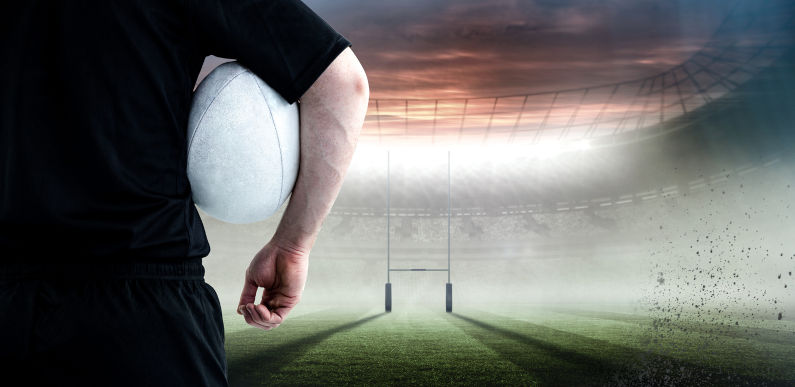Albanese drops the ball on rugby league diplomacy with PNG
December 14, 2024
In his acceptance speech after Labor won the 2022 election, Anthony Albanese promised to look after disadvantaged and vulnerable citizens. During the cost of living crisis over the past two years he told people he felt their pain and had their backs.
He just inverted these assurances with a $600 million handout to one of Australia’s most powerful and profitable sporting organisations, the Australian Rugby League Commission (ARLC). The amount is spread over 10 years to assist the inclusion of a club from Papua New Guinea (PNG) in the National Rugby League (NRL) in 2028. A significant aspect of the deal was PNG had to sign a “parallel” agreement on “strategic trust”, whereby Australia can immediately terminate the pact at any time, a condition that is squarely aimed at curbing Chinese influence.
Strictly men’s business
Albanese’s corporate welfare followed separate discussions with American President Joe Biden, and his PNG counterpart, James Marape, who shares Albanese’s passion for rugby league. According to ARLC chairman Peter V’landys, who was Albanese’s guest at a White House state dinner, Biden approved of Albanese using rugby league as a “secret weapon for the Pacific”.
However, an agreement by a few powerful and sports-loving men to finance a team is strategically contentious and driven by populist and special-interest politics that do not address the urgent daily needs of PNG’s citizens.
Responses
After the initiative surfaced earlier this year it was criticised by multiple sources for failing to consider PNG’s low rank on the UN’s Gender Inequality and high rates of poverty, infant mortality, domestic violence, and corruption.
Public policy specialists raised questions regarding corruption, accountability, and the team’s priority over existing Australian development programs. For instance, Australia already spends millions on numerous sports in the Pacific zone, and its Sports Diplomacy 2030 strategy for the Indo-Pacific includes the PNG Hunters in the professional Queensland Rugby League.
PNG also has lax laws and policies on gambling, a key NRL revenue stream. Experts in PNG and Australia indicated the vested interests of PNG’s National Gaming Control Board and its politicians in supporting gambling and its potential to damage vulnerable communities.
Former PNG prime minister Peter O’Neill said the NRL venture was “relatively frivolous” and “slapdash funding” given the nation’s dire governmental and economic problems.
What the Australian Council for International Development contended PNG needed most in 2015 still holds: “sustained investment in the critical areas of health, education, governance, and women’s empowerment.”
Albanese addressed none of these issues while announcing the undertaking. He stuck to feel-good cliches, like PNG deserved a team because of the nation’s zeal for rugby league, it was an economic development that strengthened Australian-PNG relations, and created “an opportunity for people to succeed — not just in sport but in life.” Marape invoked the shibboleth the arrangement would unite the nation.
Oliver Nobetau, a Pacific Fellow at the Lowy Institute expressed doubts about tangible benefits for PNG and warned of “an 80-minute Band-Aid for a troubled country.”
New bottles, same old politics
Albanese also said on election night he wanted “to bring Australians together”, as part of his broader plan for a “ new politics”. This fantasy soon unraveled and instead he extended the decades of dysfunctional leadership, policy paralysis, and destructive neoliberalism George Megalogenis and Graeme Turner have analysed incisively.
Albanese’s rabid support for rugby league is typical of men across the political spectrum who use sport to project their authenticity. Paradoxically, this masculine style is based on inauthentic publicity stunts. Scott Morrison habitually wore clothing with logos of the NRL’s Cronulla Sharks, while Albanese, posts images on Instagram wearing apparel of his beloved South Sydney Rabbitohs.
These populist performances have earned Albanese nicknames like “Everyman Albo”, with admonitions he should spend less time on photo-ops and focus on better governance. His popularity has plummeted to the point where Peter Dutton, who was once deemed unelectable, now poses a credible threat to Labor’s re-election prospects.
600 million dollars of policy capture
In backing a new team in PNG, Albanese prioritised commercial interests and a vanity project over an evidence-based policy that would have served national interests. Research by the Grattan Institute showed this form of policy capture reduces the capacity of governments to allocate taxpayers’ money fairly and effectively, and has significant negative economic and social impacts on the nation.
Albanese’s favouritism towards the NRL is particularly problematic, when increasing living costs have negatively affected children's participation in grassroots sports, and caused some government schools to outsource staffing and delivery of Health and Physical Education classes.
Albanese could have disbursed $600 million soundly and equitably with evidence-based measures that would have improved the lives of some of the disadvantaged and vulnerable Australians he promised to support on election night. Instead, he bankrolled a scheme for a business with lucrative broadcasting contracts, dozens of wealthy corporate sponsors and partners, a record annual revenue of over $700 million, and a CEO on a base salary of over $1 million.
